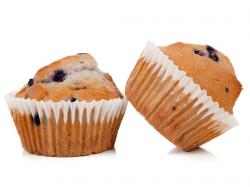Daily Diet: The Blueberry Scandal
January 25, 2011 | 1 min to read

Blueberries are primarily touted as an antioxidant, and they do in fact serve up a good-sized dose, as well as containing anthocyanins and phenolics that can also act as antioxidants. (Antioxidants serve to protect the body against the damaging effects of free radicals, combating aging and chronic illness.) One cup of blueberries has 84 calories, with 0 calories from fat. There is no cholesterol and no sodium, and 15% of the recommended daily allowance (RDA) of Vitamin C. Made up of 84% water, these little round spheres can be added to your diet easily. Blueberries are added to a variety of prepared food products in both fresh, dehydrated, and freeze-dried form. But when is a blueberry not a blueberry?
In the case of certain cereals, bagels, breads and bars, the blueberries are not actual fruit at all, just a mixture of artificial colors, partially-hydrogenated oils and high fructose corn syrup. A Food Investigations mini-documentary released today exposes what it calls the "blueberry deception. " The investigation, conducted by award-winning investigative journalist Mike Adams, also known as the Health Ranger, found that several large companies such as Kellogg's, Target, Betty Crocker, and General Mills have been faking the blueberries in some of their products. One General Mills cereal singled out in the mini-documentary is called Total Blueberry Pomegranate Cereal. But a Consumer Wellness Center investigation reveals that this cereal contains neither blueberries nor pomegranates.
As explained in the video, consumers can avoid being deceived by food companies by following these three simple steps:
To read the rest of the story, please go to: Health News
